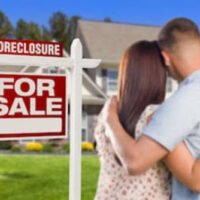What Is Wrongful Foreclosure?

When we think of foreclosure, we often think of irresponsible homeowners who didn’t pay their mortgages on time. However, this is not always the case. In some cases, the bank or mortgage lender will start an illegal foreclosure action against the homeowner for no real reason.
The homeowner may think that they have made timely payments but the lender has engaged in fraud. For example, they may alter documents, forge signatures, and evict homeowners for no apparent reason. The practice of forged signatures on documents is especially common. To comply with court rules, the homeowners must sign foreclosure documents in person. However, foreclosure processing companies often submit documents that have forged signatures rather than real signatures. This is illegal and can result in criminal action.
A wrongful foreclosure can happen during the foreclosure process. Even if the homeowner has not made timely payments and truly qualifies for foreclosure, lenders are still required to follow the procedures in their state. There are specific rules related to redeeming the property, notice requirements, sale procedure, and eviction. If the lender fails to follow the rules, the court can order that the parties start over.
In many cases, wrongful foreclosure is unintentional. It is the product of an error or miscommunication. This is why it is important for homeowners to check their mortgage statements carefully. If the interest rate is incorrect or payments are not being applied correctly, it’s a good idea to let the lender know right away so the mistake can be fixed. They should not just ignore the situation and assume that the lender will notice the error and fix it.
Causes of Action
A homeowner can file a lawsuit against a lender when the following situation occur and lead to a wrongful foreclosure:
- Breach of contract
- Misapplied payments
- Unnecessary insurance
- Wrong interest rate adjustment
- Wrong tax impound accounts
- Unfair business practices
- Emotional distress
If the court rules in favor of the borrower, they can receive damages. This includes financial compensation, which is often measured by the property value. The borrower can also receive compensation for emotional distress, since the thought of losing a home can be a hugely distressful situation. The lender will also have to cancel the foreclosure and pay the borrower’s legal bills.
If there is evidence that the wrongful foreclosure was initiated intentionally out of malice or fraud, then the borrower could receive punitive damages. These damages are put in place to punish the lender and prevent them from engaging in this type of behavior in the future.
Seek Legal Help
Banks and mortgage lenders need to have a good cause to start a foreclosure action. Homeowners should not have to be afraid of losing their home when they did nothing wrong and the lender is the one who made the error.
Fort Lauderdale real estate lawyer Edward J. Jennings, P.A. can help you with real estate issues. We will fight your case in court if necessary. Get started with a consultation. Call 954-764-4330 or fill out the online form.
Resource:
homeguides.sfgate.com/constitutes-wrongful-foreclosure-58398.html
